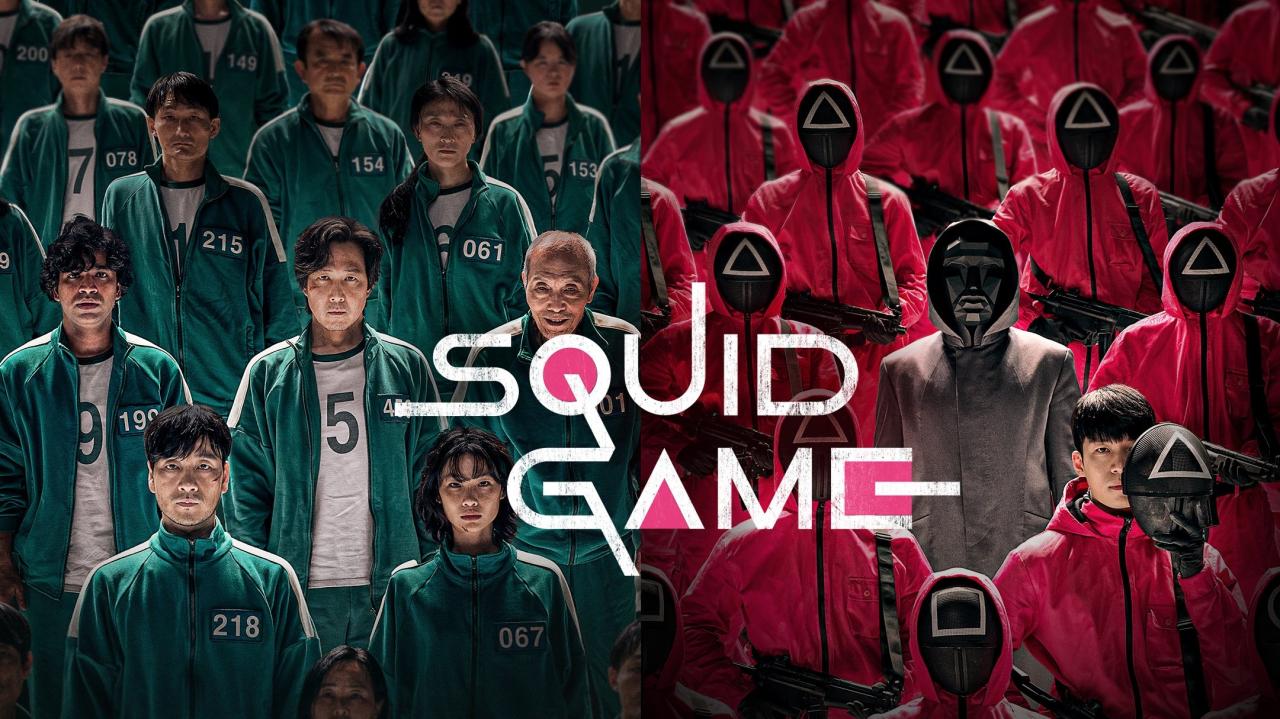VIP 3 Squid Game plunges players into a high-stakes world of deadly challenges and strategic alliances. This level presents a unique twist on the original game’s brutal mechanics, demanding both physical and mental prowess from its participants. We’ll explore the intricate gameplay, analyze player profiles and strategies, delve into the thematic elements, and uncover fan theories surrounding this pivotal stage.
So you’re into VIP 3 Squid Game, huh? That level of exclusivity reminds me of the kind of high-tech spectacle you’d see at a major event, like the shanghai drone show 2035. Imagine the drones forming giant game pieces! Think about the scale – that’s the kind of production value VIP 3 Squid Game probably has.
It’s all about that impressive, unforgettable experience.
Prepare to unravel the secrets of VIP 3, from its visually stunning design to the complex moral dilemmas it presents. We’ll dissect the strategic advantages and disadvantages of various approaches, examine the impact of betrayals, and ultimately understand what separates success from failure in this cutthroat competition.
VIP 3 Squid Game: Gameplay Mechanics
VIP 3 in Squid Game represents a significant escalation in challenge and complexity compared to previous rounds. The gameplay shifts from straightforward physical tests to a more intricate game of strategy, deception, and manipulation, heavily influenced by the presence of the VIPs themselves. The stakes are exponentially higher, and the rules are far more ambiguous.
VIP 3 Game Layout
The VIP 3 game area is a multi-stage environment designed to test the players’ resourcefulness and ability to navigate complex social dynamics. The layout can be visualized as follows:
| Area | Description |
|---|---|
| Observation Deck | Elevated platform where VIPs observe the game, influencing events through their betting and interventions. |
| Negotiation Zone | A central area where players can interact, form alliances, and make deals, often involving high-stakes bargaining and potential betrayals. |
| Challenge Chambers | Multiple smaller rooms, each containing a unique and unpredictable challenge, often requiring problem-solving, physical dexterity, or mental fortitude. |
| Elimination Area | The designated space where players are eliminated from the game, often marked by dramatic visual cues and heightened tension. |
Comparison with Earlier Levels

Unlike earlier levels, which primarily focused on physical skills and simple rules, VIP 3 introduces significant elements of social engineering and strategic decision-making. The challenges are less about individual prowess and more about navigating complex relationships and exploiting opportunities for advantage. The unpredictable nature of VIP intervention further distinguishes it from previous, more structured games.
So, you’re hyped for VIP 3 in the Squid Game universe? That’s awesome! But before you start planning your own deadly games, maybe check out the updated regulations – it’s crucial to know the new drone rules Canada has in place, especially if your VIP 3 plans involve aerial surveillance (or, you know, anything remotely resembling a deadly game).
Knowing the rules could save you a lot of trouble, even if it’s not as exciting as the show!
Strategic Advantages and Disadvantages
Forming strong alliances can provide significant advantages, but requires trust and a willingness to share resources. Betrayal, while potentially lucrative, carries substantial risks. A solitary approach can be effective if a player possesses exceptional skills, but leaves them vulnerable to manipulation. Careful observation of the VIPs’ betting patterns can offer insights into their preferences and potentially influence the outcome.
VIP 3 Squid Game: Player Profiles & Strategies
The dynamic nature of VIP 3 necessitates diverse strategies. Player success hinges on adaptability and the ability to read both the game and their fellow competitors.
Distinct Player Archetypes
- The Strategist: This player excels at analyzing the game’s dynamics, forming alliances strategically, and predicting the actions of others. They prioritize long-term planning and carefully manage risks.
- The Opportunist: This player focuses on exploiting weaknesses and seizing opportunities as they arise. They are less concerned with long-term alliances and are more likely to engage in betrayal if it serves their immediate interests.
- The Lone Wolf: This player prefers to operate independently, relying on their own skills and resourcefulness. They are less susceptible to manipulation but may lack the support system of an alliance.
Impact of Alliances and Betrayals

Alliances can provide a significant advantage, offering protection, shared resources, and a combined strength to overcome challenges. However, the inherent risk of betrayal looms large, as players may shift loyalties for personal gain. The consequences of betrayal can range from minor setbacks to complete elimination.
Common Pitfalls and Mistakes

- Underestimating the VIPs’ influence.
- Over-reliance on a single strategy.
- Failing to adapt to changing circumstances.
- Trusting the wrong allies.
Successful and Unsuccessful Strategies
- Successful: Forming a strong, reliable alliance; carefully observing VIP preferences; adapting strategies based on unfolding events.
- Unsuccessful: Blindly trusting others; ignoring the VIPs’ influence; sticking to a rigid plan despite changing circumstances.
VIP 3 Squid Game: Thematic Elements & Narrative
VIP 3 serves as a powerful commentary on the corrupting influence of power and wealth, highlighting the moral compromises individuals make in pursuit of survival and success. The level’s design underscores the themes of manipulation, betrayal, and the dehumanizing effects of extreme competition.
Symbolism and Thematic Implications
The observation deck, where the VIPs watch and bet, symbolizes the detached and privileged perspective of the wealthy elite, highlighting their lack of empathy for the players’ plight. The unpredictable nature of the challenges mirrors the capricious nature of fortune and the arbitrary distribution of power.
Psychological Impact of Challenges
The challenges in VIP 3 are designed to induce intense psychological stress, forcing players to confront their own moral limits and make difficult choices under pressure. The constant threat of elimination and the ever-present gaze of the VIPs contribute to a sense of paranoia and distrust.
Moral Dilemmas Compared to Other Levels
While earlier levels presented physical challenges, VIP 3 introduces a more nuanced moral dimension. Players are forced to confront choices with significant ethical implications, blurring the lines between survival and morality in a way that previous levels did not. The emphasis shifts from physical strength to mental resilience and ethical ambiguity.
Setting and Environment’s Contribution to Atmosphere, Vip 3 squid game
The opulent yet sterile setting of VIP 3 creates a stark contrast between the luxurious environment enjoyed by the VIPs and the brutal reality faced by the players. This juxtaposition heightens the tension and underscores the inequality at the heart of the game.
VIP 3 Squid Game: Visual Design & Aesthetics
The visual design of VIP 3 is deliberately jarring, contrasting the opulence of the VIP area with the stark, clinical environment of the game itself. This contrast enhances the sense of unease and underscores the moral decay at the heart of the game.
Key Visual Elements
- The Observation Deck: A luxurious space, filled with opulent furnishings and showcasing the wealth and power of the VIPs, creating a stark contrast to the players’ desperate struggle for survival.
- The Challenge Chambers: Designed to be sterile and unsettling, these spaces reflect the dehumanizing nature of the competition and the psychological pressure placed upon the players.
- The Elimination Area: A dramatic space, visually emphasizing the finality of elimination and the high stakes of the game.
Visual Design Enhancing Suspense and Tension
The use of contrasting color palettes, strategic lighting, and unsettling soundscapes contribute to a heightened sense of suspense and tension. The juxtaposition of luxury and brutality creates a disturbing atmosphere that reflects the moral complexities of the game.
Visual Description of a Pivotal Moment
The air crackled with anticipation as the final two players faced off in the Negotiation Zone. One, a wiry strategist with eyes that missed nothing, offered a desperate alliance. The other, a hulking opportunist, merely smirked, his gaze fixed on the VIPs, their bets flickering on the screens behind them. The weight of their decision, the potential for betrayal, hung heavy in the air, a silent promise of violence and uncertainty.
VIP 3 Squid Game: Fan Theories & Interpretations
The ambiguity surrounding VIP 3 has fueled extensive fan speculation and the development of diverse interpretations of the events and characters. These theories offer compelling insights into the show’s broader themes and narrative.
Prominent Fan Theories
- Theories about the VIPs’ identities and motivations.
- Speculations on the true nature of the challenges and their hidden meanings.
- Interpretations of the symbolic significance of specific visual elements.
Comparison of Different Interpretations

Some fans focus on the social commentary aspects of VIP 3, while others explore the psychological impact on the players. Some interpretations highlight the manipulative nature of the VIPs, while others focus on the players’ agency and resilience.
Recurring Motifs and Symbols in Fan Discussions
Recurring motifs include themes of power, wealth, corruption, manipulation, and the dehumanizing effects of extreme competition. Symbolic elements such as the observation deck, the challenge chambers, and the elimination area are frequently analyzed for their deeper meaning.
Impact of Fan Theories on Overall Understanding
Fan theories have enriched the understanding of VIP 3, offering diverse perspectives and prompting deeper engagement with the show’s complex themes and narrative. They contribute to a more nuanced appreciation of the game’s moral and psychological dimensions.
Closing Notes
VIP 3 Squid Game isn’t just another level; it’s a microcosm of the series’ central themes amplified. Through analyzing gameplay, player psychology, and fan interpretations, we’ve uncovered the intricate layers of this deadly competition. Whether you’re a seasoned Squid Game strategist or a curious newcomer, understanding VIP 3 offers a deeper appreciation for the show’s captivating narrative and its exploration of human nature under extreme pressure.
The stakes are higher, the challenges are more intricate, and the psychological impact is profound. The journey through VIP 3 is a testament to the enduring power of this brutal, yet captivating, game.
So you’re into VIP 3 Squid Game, huh? That level of spectacle is intense! Imagine the possibilities if they used drones for the games – think of the scale! Check out what’s happening in drone tech at the china drone show 2027 ; it might give you some ideas for a truly epic VIP 4 Squid Game.
Maybe even incorporate some of that tech into your next viewing party!
Popular Questions
What makes VIP 3 different from other Squid Game levels?
VIP 3 introduces significantly higher stakes, more complex challenges requiring greater strategic thinking, and a more intense psychological element compared to earlier levels.
Are there any specific items or advantages players can utilize in VIP 3?
While specific items aren’t explicitly detailed, alliances and manipulation of other players become key strategic advantages in navigating the challenges.
What is the overall survival rate in VIP 3?
The survival rate in VIP 3 is speculated to be significantly lower than previous rounds due to the increased complexity and psychological pressure.
What are some common misconceptions about VIP 3?
A common misconception is that brute strength alone guarantees success. Strategic thinking and understanding the psychological dynamics are equally, if not more, important.
